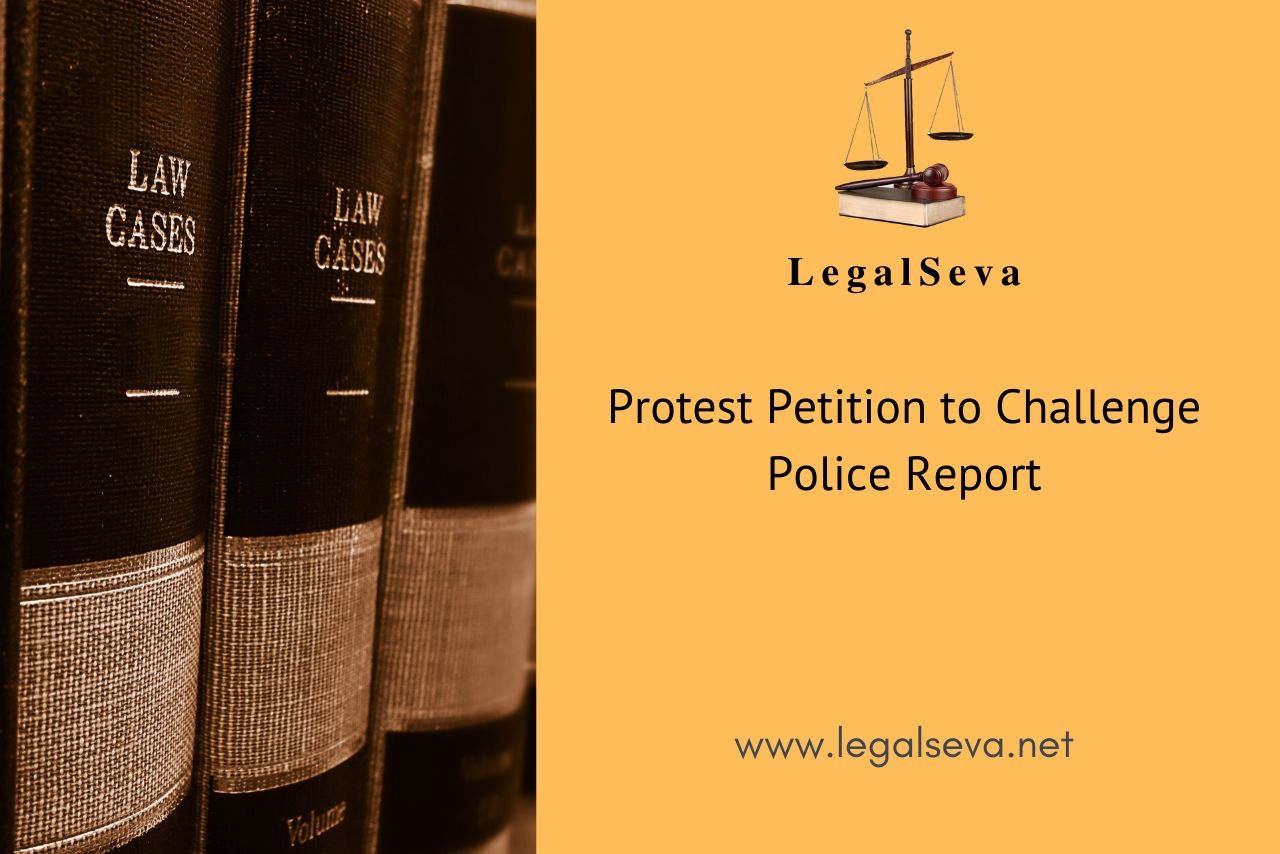Last Updated on June 20, 2024 by Satish Mishra
Judiciary had played an important role towards increasing the role of the victim. One of the important judicial creation in this direction is Protest Petition. Though this term ‘Protest Petition’ is nowhere defined under the Criminal Law in India but when the aggrieved person or complainant is not satisfied with the police report which filed before the Concerned Court; the complainant may move the petition against the negative police report which is called the Protest Petition. In simple words, a Protest Petition is a representation made by the victim/informant to the court during or after completion of investigation by the police. It is a legal recourse a grieving victim may have once a slapdash report is filed by the police on the basic of an investigation. Protest Petition is treated as a complaint under Section 190 of Criminal Procedure Code (Cr Pc).
Also Read- CRIMINAL COMPLAINT TO MAGISTRATE
The ‘protest petition’ bequeaths victims with the right to petition against a police report if they are not satisfied with it. However, there is a lack of awareness about this unique provision, due to the average citizen’s de-sensitisation to the ineptitude of the police.
The history of Protest Petition can be traced back to the time before Independence. The High Courts of Calcutta and Patna have extensively dealt with the legal necessities of Protest Petition before independence. However, the first case of Protest Petition after independence was recorded in 1990s. The High Courts seem to have considered Protest Petitions as any representations protesting against police investigations. The term predominantly used in Calcutta was ‘Naraji’ which loosely translates to dissatisfaction. Initially this extended to petitions filed by both accused persons and complainants/victims, although the latter far outnumber the former. Also, the Protest Petition by an accused seems to have only been filed during the investigation, whereas those by complainants were filed during as well as after conclusion of investigations.
Also Read- CLOSING OF FIR VIA CLOSURE REPORT
When the Final Report is submitted by the Police and the Protest Petition is filed, the Magistrate has following three options available to him-
- He may accept the Final Report and may also reject the Protest Petition;
- He may accept the Final Report but treat the Protest Petition as a complaint and proceed in accordance with Section 200 and 202 of the Code;
- He may accept the Protest Petition and reject the Final Report and take cognizance under Section 190(1)(b) of the Code.
Sub-section 1 Clause (b) of Section 190 has empowered the Magistrate to take cognizance of non-cognizable upon a report in writing made by police-officer which is taken only on the basis of documents forwarded by the Police Officer under Section 173(2) of Criminal Procedure Code, but when the Magistrate apply his mind to take into consideration of other substantive material or evidence, it would be a case of taking cognizance under Section 190(1)(a) and in that case the procedure prescribed under Section 200 and 202 of Criminal Procedure Code has to be followed. Further, it is not mandatory for the Magistrate to forward the Complaint to police for investigation under Section 156(3) of the Code. The Magistrate can conduct the enquiry himself under Section 202 instead for forwarding the same to the Police.
Also Read- REGISTRATION OF FIR- GUIDE
However, it should be noted that it is necessary that the Protest Petition satisfies the essential ingredients of the Complaint before Magistrate takes cognizance under Section 190(1)(a) of the Criminal Procedure Code. Further, any orders passed by the magistrate regarding the protest petition can be appealed in higher courts. Also, nothing prohibits the filing or entertaining of a second complaint even on the same facts, provided that the earlier complaint has been subject to some irregularities either in the procedural or factual aspect.
Also Read- CHARGESHEET IN CRIMINAL CASE
This concept of Protest Petition is a double-edged sword as it can negatively affect the rights of the accused. For instance, even if the magistrate cannot direct a further investigation or re-investigation, he can still direct it on the basis of a protest petition, causing the accused, if already in custody, to be detained for the maximum period of the prescribed time.
For more info on subject, please dial 99888-17966.
